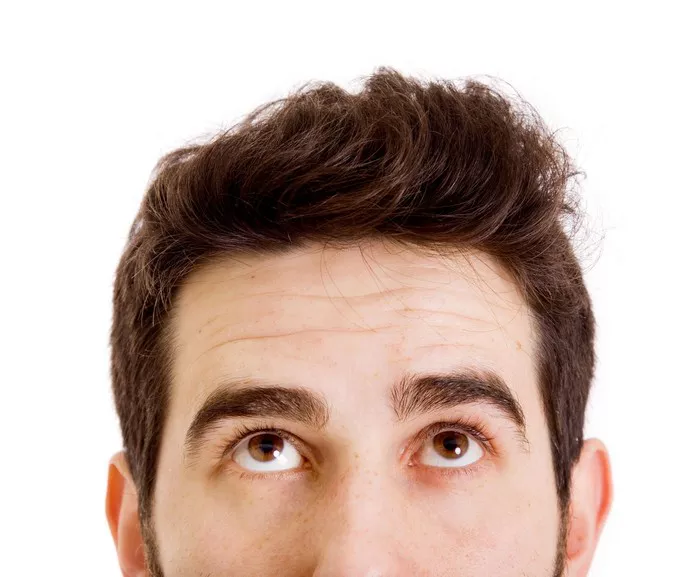Hair loss is a common concern that can be attributed to various factors, from genetics to hormonal imbalances. One lesser-known but significant element in the hair health equation is iron. While iron is essential for various bodily functions, an excess of it might have implications for your locks. In this exploration, we delve into the question: Can excess iron cause hair loss? Understanding this dynamic requires a nuanced examination of the interplay between iron levels and the delicate balance of hair growth.
The Importance of Iron for Hair Health
Iron is a vital mineral that plays a crucial role in transporting oxygen throughout the body, supporting energy production, and maintaining overall health. When it comes to hair, iron is an integral part of the process that stimulates hair follicles and encourages growth. However, like many elements in the body, maintaining a balance is key, as both iron deficiency and excess can have implications for hair health.
The Iron-Hair Connection: Striking the Right Balance
Hair follicles require an optimal environment to thrive, and iron contributes to this by supporting the production of red blood cells and providing the necessary oxygen and nutrients to the hair roots. However, an excess of iron can disrupt this delicate balance. The body has mechanisms to regulate iron absorption, but when these mechanisms are overwhelmed, it can lead to a condition known as iron overload or hemochromatosis.
Iron Overload and Hair Loss: Unraveling the Relationship
Iron overload occurs when the body accumulates more iron than it can use or eliminate. This excess iron can deposit in various organs, potentially affecting their normal functioning. While hair loss is not the primary symptom of iron overload, it can be an indicator of the broader impact of excessive iron levels on the body. The exact mechanisms linking iron overload to hair loss are not fully understood, but studies suggest that oxidative stress and inflammation may play a role.
Oxidative Stress and Inflammation: Culprits in Excess Iron-Related Hair Loss
Excess iron in the body can lead to oxidative stress, a condition where there is an imbalance between the production of free radicals and the body’s ability to neutralize them. Oxidative stress can damage cells, including those in the hair follicles, potentially leading to hair loss. Additionally, iron overload is associated with increased inflammation, which can further contribute to hair thinning and shedding.
Genetic Factors: Individual Variations in Iron Metabolism
Genetic factors also play a role in how the body metabolizes and regulates iron. Individuals with specific genetic variations may be more susceptible to iron overload, potentially influencing their susceptibility to hair loss. Understanding your genetic predisposition to iron metabolism can provide valuable insights into how your body handles this essential mineral.
Symptoms of Iron Overload: Beyond Hair Loss
Identifying iron overload involves recognizing a range of symptoms beyond hair loss. Fatigue, joint pain, abdominal pain, and unexplained weight loss are among the signs that may accompany excess iron levels. If you are experiencing these symptoms in conjunction with hair loss, seeking medical attention is crucial for a comprehensive evaluation and diagnosis.
Diagnosis and Monitoring: The Role of Healthcare Professionals
Diagnosing iron overload involves thorough testing, including blood tests to assess iron levels and genetic testing to identify potential predispositions. It’s essential to work closely with healthcare professionals to determine the most appropriate course of action. Monitoring iron levels through regular check-ups is crucial for individuals diagnosed with iron overload, ensuring that interventions are tailored to their specific needs.
Treatment Options: Balancing Iron Levels for Optimal Health
If diagnosed with iron overload, various treatment options are available to manage excess iron levels. Therapeutic phlebotomy, a process that involves the removal of blood to reduce iron levels, is a common approach. Dietary adjustments and the use of iron-chelating medications may also be recommended. Balancing iron levels not only addresses the potential impact on hair health but also mitigates the risk of complications affecting other organs.
Prevention and Lifestyle Considerations: A Holistic Approach
Preventing excess iron-related hair loss involves adopting a holistic approach to health. Regular blood screenings, especially for those with a family history of iron overload, can aid in early detection. Maintaining a well-balanced diet, rich in iron but not excessive, contributes to overall health and supports optimal hair growth. Lifestyle considerations, such as avoiding excessive iron supplementation without medical guidance, are crucial in maintaining a harmonious iron balance.
See Also: How To Stimulate Your Scalp For Hair Growth: A Quick Guide
Conclusion: Navigating the Delicate Balance for Healthy Tresses
While iron is indispensable for numerous bodily functions, its impact on hair health requires a delicate balance. Excessive iron, leading to conditions like iron overload, may contribute to hair loss through mechanisms such as oxidative stress and inflammation. Recognizing the signs, seeking medical guidance, and implementing appropriate interventions are essential steps in navigating the intricate relationship between iron levels and healthy tresses. Striking this balance ensures not only optimal hair growth but also overall well-being.


